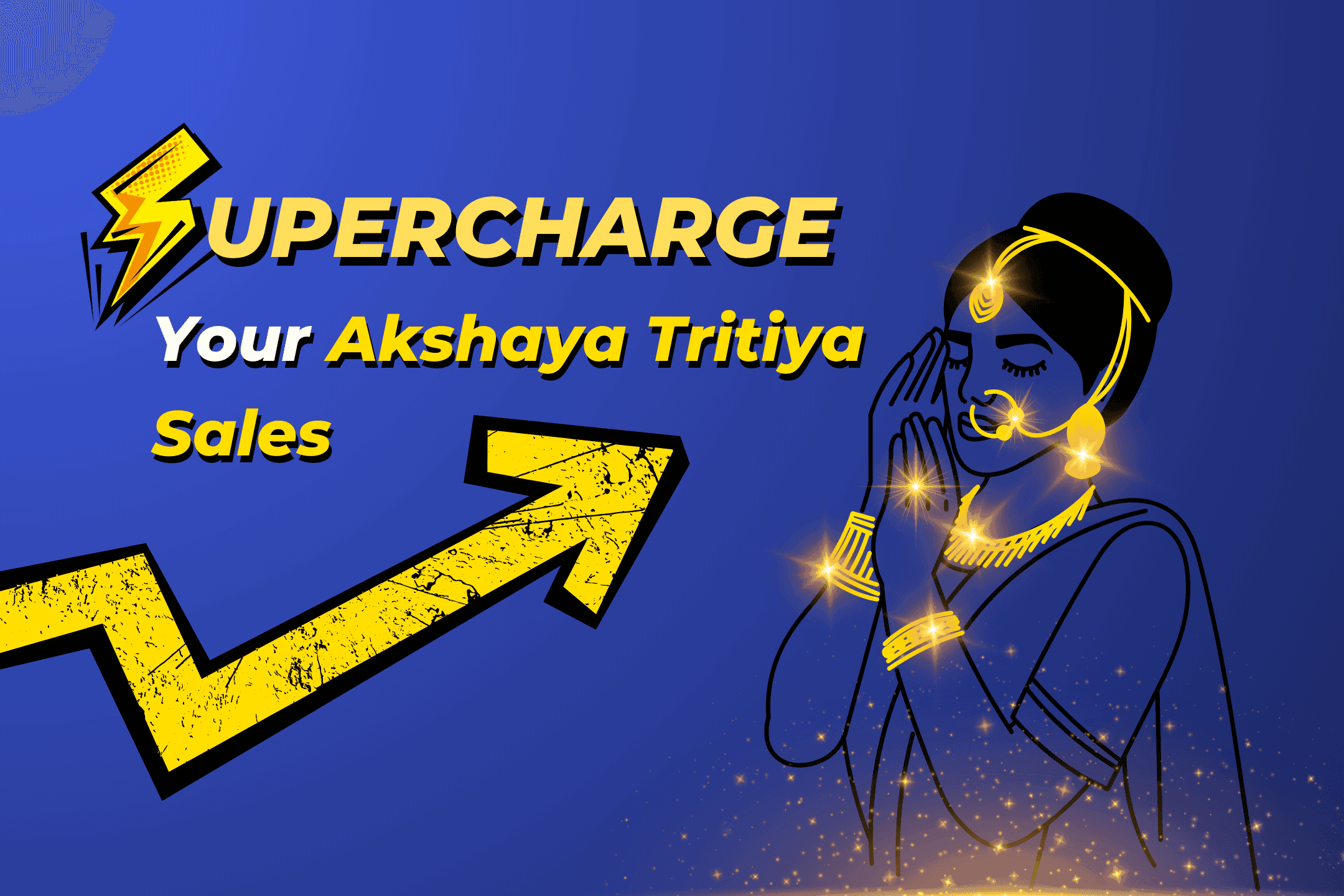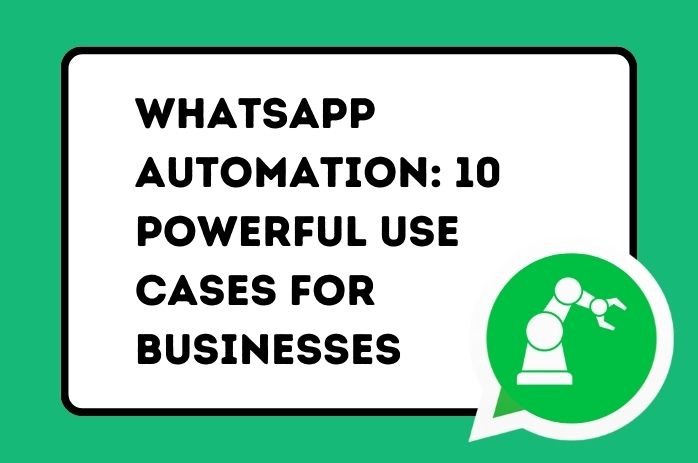
Contents
- Advantages of WhatsApp Automation
- Bringing Customers Onboard with WhatsApp Automation
- Shipment and Tracking messages with WhatsApp Automation
- Sending Reminders with WhatsApp Automation
- Convey Discounts and Offers through WhatsApp Automation
- Improving Sales Workflows via WhatsApp Automation
- Improving Sales Workflows via WhatsApp Automation
- Simplifying Exchange and Return Workflows by WhatsApp Automation
- Setting Out-Of-Office or Away Messages
- Collecting Feedback through WhatsApp Automation
- Collecting Surveys via WhatsApp Automation
WhatsApp is where the marketing business is being played. And if you aren’t on the field, you are missing out.
Earlier, for a customer to interact with a brand, he would have to call a toll-free number, be put on hold, and basically just spend long hours just to get a question answered, or to make some kind of enquiry.
WhatsApp has removed all these barriers by making communication for the customer as well as the brand simple and easy.
We know what WhatsApp is and how advantageous it is for a business to use it, but what is WhatsApp Automation?
Automation is either eliminating human involvement, or at least minimizing it as much as possible. It allows you to remove human errors, inefficiencies and discrepancies.
WhatsApp automation can be set up in such a way that responses are triggered upon the use of certain keywords.
Advantages of WhatsApp Automation
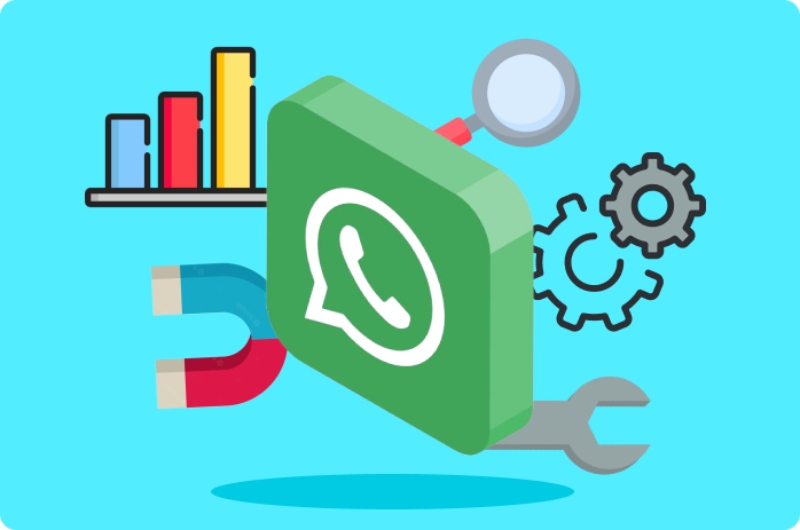
One of the biggest advantages of automation is SPEED. Customers often associate speed with efficiency. If a customer’s query or question is addressed immediately within a matter of seconds, then he automatically assigns a higher value to the brand.
WhatsApp Automation allows businesses to setup triggers that automatically send the relevant message to the customer as he is taking a particular action.
Your team can focus on other tasks like innovating your products and services instead of focusing on customer care.
With WhatsApp Business API, not just customer care, but also marketing campaigns can be automated.
Since customer satisfaction increases, Customer Retention also increases.
Here are a few such instances or triggers that can be automated on WhatsApp to bring the highest level of efficiency.
1. Bringing Customers Onboard with WhatsApp Automation
A new customer can be initiated into your community by sending him a personalized and automated welcome message. This can be done either when he signs-up. A template giving him a brief description of what is in store for him will make him feel like a valued customer.
This is one of the most common and widely used triggers.
If it is an online fashion store, a customer can be guided as to what is in fashion.
If it is a travel company, the message can tell the customer about the destinations that are being frequently visited and highly rated.
If it is a hotel booking website, the customer can be told about hotels where the rooms are getting booked.
Every industry can have a welcome message that is unique to its purpose that helps guide the customer and makes him feel welcome.
2. Shipment and Tracking messages with WhatsApp automation
Businesses that deal with products can send shipment confirmation/delay messages. Clickable buttons to track the customers order can be added.
Customers can also be informed when their package leaves the warehouse, when it is in transit, when it is has reached the destination, and when it is out for delivery.
These triggers can be set up based on how frequently the business wants to reach out to the customer.
WhatsApp can be connected to the existing CRM to notify customers of their order confirmation, cancellation, delays in shipment, the courier service being used, delivery OTPs, and more. In short, the WhatsApp automation for shipment and tracking is a must-have for any business that wants to streamline its operations and provide a complete and hassle-free customer experience.
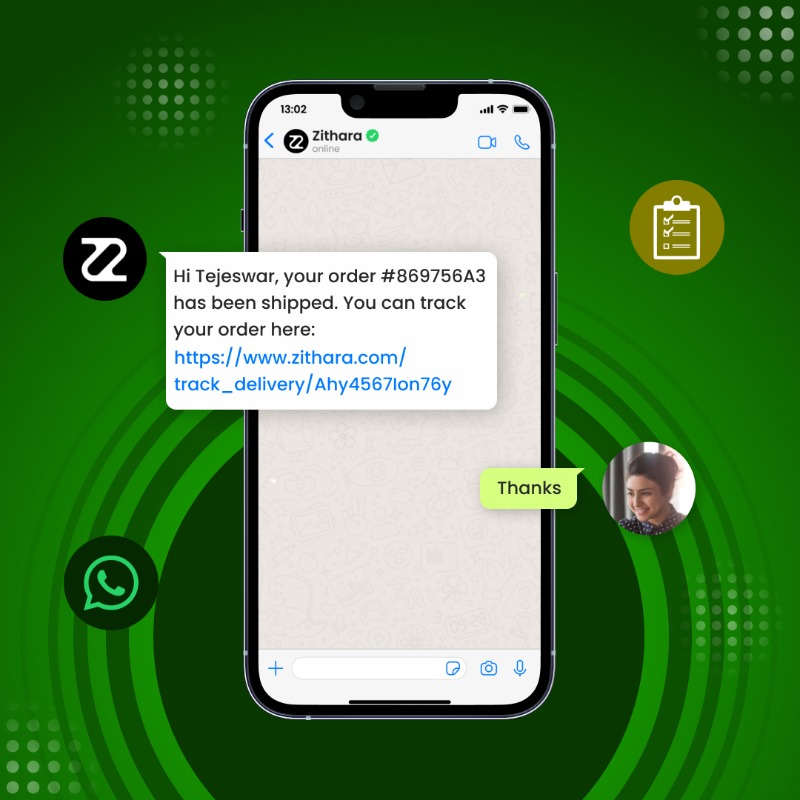
3. Sending Reminders with WhatsApp Automation
Customers can be reminded about any upcoming big sale, or big event, or product launch that they should not miss.
They can be intimated about any rewards they have remaining in their account and on what products they can redeem it.
Customers can be notified about abandoned carts, and about products that have come back into stock.
You may also occasionally send the link to your Website. Studies have shown that sending a link to the website has a very click-through rate.
4. Convey Discounts and Offers through WhatsApp Automation
Based on CRM and customer personas, customers can be targeted with specific offers and deals that will entice them to visit the store and make repeat purchases.
WhatsApp automated messages that have personalized offers and deals tend to have a higher open rate and boast of higher conversion rates as well.
Sending out Discounts and Offers can be also used for customer acquisition, not just Customer Retention.
This is quite similar to sending an SMS with a the discount code but with one very big advantage. WhatsApp lets you add gifs, images, and videos which can make the redemption of your coupons codes and vouchers very attractive.
The discounts being offered via WhatsApp can be made premium. Customers on WhatsApp can be offered the discounts much before the customers view it on the website or the followers on social media channels.
Unique codes can be scheduled to be sent on the occasion of specific events like Christmas, or Valentines day.
To go a step further, customers can also be sent unique discount code on their birthdays that only they can redeem. This exclusivity can be used to strengthen the relationship between the brand and the customer as the discount code is applicable only to him, and not the general public.
Sometimes, customers maybe hesitant on clicking a link that lets them redeem the discount that is given to them due to the fear of being scammed. To avoid this, make sure you you use WhatsApp Business API to send the offers so that customers know that it is coming from a genuine source. The green tick, the business name, and the official logo in the display picture will increase the redemption rate.
You can also send such offers only to the most active customers who are repeat purchasers and are familiar with the brand, thus reducing acquisition costs and banking entirely on Customer Retention and Engagement.
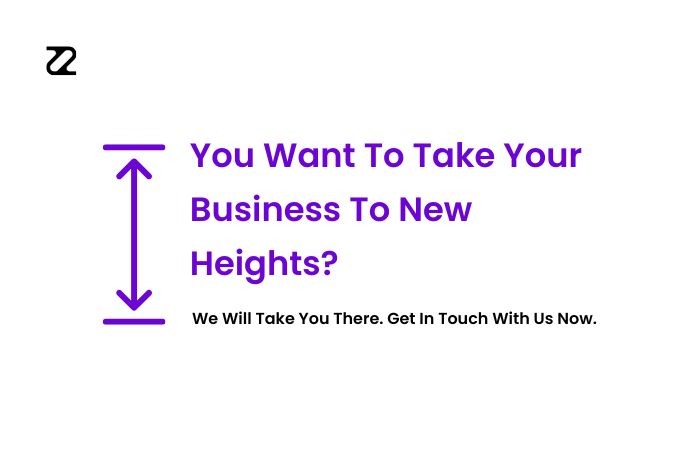
5. Replying to FAQs through WhatsApp Automation
Upon receiving customer queries with certain specific keywords, pre-registered and high quality templates can be sent out as responses. This will reduce the response time and also maintain consistency across all the customers.
This works greatly in freeing up your Customer Care agents for more pressing and bigger issues that might need to be handled.
6. Improving Sales Workflows via WhatsApp Automation
Sales cycles can be automated on WhatsApp. Everything from discovering the customer’s intent, sending relevant catalogs, assisting in finding the right one, to quick check-out can be enabled on WhatsApp with clickable buttons. This is essentially akin to setting up a store on WhatsApp itself!
You can also keep updating your WhatsApp status every 24 hours to remain in the minds of your customers. The content can be kept short and quirky. Or you can experiment, to see which content grabs the most viewers and gets converted into a sale.
7. Simplifying Exchange and Return Workflows by WhatsApp Automation
Instead of setting up just one response for a message, an entire conversation can be built based on a query or a function.
For example, if a customer wants to exchange an item of clothing an entire flow can be created to get the invoice number, the product name, the size he has, and the size he wants.
This would make the entire process of exchange and returns easier for the customer and the business as well.
Such a workflow can also be set up for telecom networks wherein a customer would like to change his existing plan to another one. Payment buttons can be included in such workflows such that customer need not toggle between multiple apps and have everything at his fingertips.
8. Setting Out-Of-Office or Away Messages.
Usually, a WhatsApp chatbot is available 24x7. But in some situations, a customer would want to talk to a human agent if there are certain kinks he wants to sort out.
If the above situation arises during non-working hours, then an automated out-of-office message can be sent that would let the customer know the exact days and the exact time a human agent will be available to take their call.
Although this might seem counter-intuitive in the beginning, it is a great way to let a customer know that he is not going unheard.
9. Collecting Feedback through WhatsApp Automation
Collecting Feedback is essential to make a business successful. Involving the customers and getting their insights can be eye-opening as you can now see your business from the eyes of the customer. And there is no better way to improve your customer service than by listening to him, and also making him feel valued and heard as his feedback is taken into account.
Instead of making your team call the customers, or asking them face-to-face at checkout about their experience at the store, WhatsApp messages can be automated to collect feedback.
WhatsApp automation can be done to collect feedback from customers after a purchase or transaction is done. Feedback forms can be sent for multiple touch points as well.
Post-Purchase Completion
Feedback forms can be sent to determine how easy or difficult it was for the customer to make the transaction and make the payment. If the customer gives a positive response, the feedback collection can end there.
If the customer response is negative, the feedback process can be continued and a list message can be sent to probe into the specific reason the process was not up to the mark.
On-Delivery and After-Delivery Feedback
Feedback can be collected on the ease of the courier reaching the customer, the state of the courier package i.e if it was in proper condition or not, and whether it reached on time.
Feedback can be taken on whether they want the package to be wrapped with more care, or using less material
If it is a furniture company, or a tech company, feedback and questions can be asked on whether the customer needs help putting the furniture together or his system together. This could open up another set of automated workflows entirely.
Product-Specific Feedback
The number of days after which the feedback form for the product/service is to be sent can be pre-determined based on the business/product/service.
If it is a skincare product, feedback form can be sent after a week or more.
If it is apparel, it can be sent after a day.
List messages can also be sent here to ask what specifically they liked about the product.
If it is a makeup product, the customer can be asked which he liked the best - the color, the pigmentation, the consistency, the packaging, the value for money, the ease of use etc.
10. Collecting Surveys via WhatsApp Automation
Just like feedback forms, survey forms can be sent out on WhatsApp to understand what the customers need, want and expect from the product.
Surveys on WhatsApp is a very low-cost, versatile and effective way to collect useful information. WhatsApp is also used by every person regardless of the economic strata they belong to. A mid-level IT employee and his CEO, both use WhatsApp. So the reach is very clearly wider.
Survey messages can also be personalized, which increases the relationship quality between the customer and the brand.
There are additional advantages to using verified WhatsApp Business Account to collect surveys since there is an element of trust attached to it. The customer providing his data also feels assured that his information will not be misused if the WhatsApp account collecting surveys is verified, has a business name instead of a number, and has the official logo as the display picture.
While collecting surveys on WhatsApp, you can also track whether the survey has been delivered and read. Failed deliveries reports can also be seen. This feature is useful to know how well the data collection is going.
It is also easier to see responses of WhatsApp forms on a mobile device as opposed go Google forms, where the responses can be checked only on the browser. So not only is the WhatsApp survey form easier for the customer to fill-out, but also for the business to see the collected data. It offers a flexibility that is not available on other form-creating apps and tools.
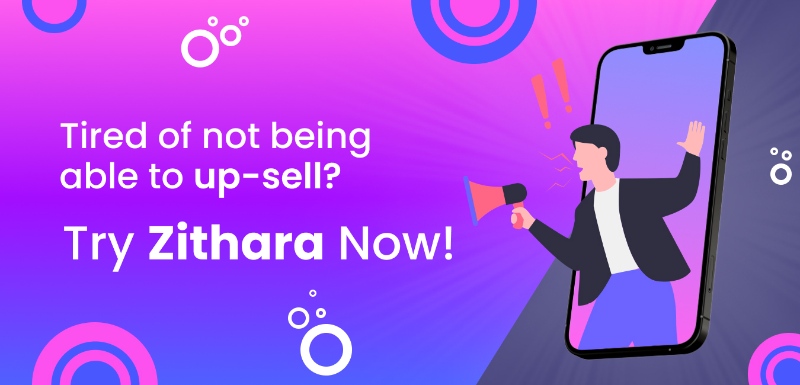
Partner with Zithara and get the power of WhatsApp automation to your business!
Click here to read about the power of WhatsApp Marketing!
FAQs
1. Can WhatsApp be automated?
Yes, WhatsApp can be automated to make conversations with customers easier.
2. How do I set up automated WhatsApp?
WhatsApp messages can be automated on the WA Business App but the features are very basic. Advanced automation features are available on WhatsApp Business API and suitable for larger businesses.
3. Is WhatsApp automation free?
WhatsApp automation on the WA Business App is free. Automation through a chatbot depends on the chatbot subscription provider that you use.
4. What is WhatsApp automation all about?
WhatsApp automation is the process of generating replies to customer queries without any human interference. It is done to save time and human effort. It is also done to be able to handle multiple customer enquiries at the same time.
5. How do I get automation on WhatsApp?
WhatsApp Business App allows you to automate a few basic messages. But for a higher degree of automation, you will need to get WhatsApp Business API.
6. How much is a WhatsApp bot?
The price of the WhatsApp bot depends on the features made available via the bot. Basic features include broadcasting, retargeting, templates and advanced features include Project APIs, webhooks, and higher messaging speeds. Basic plans start at Rs 999 per month, and for customized solutions, the bot price starts at Rs 2,500.
7. Does WhatsApp have bot API?
WhatsApp has a WhatsApp Business API which can run chatbots.
